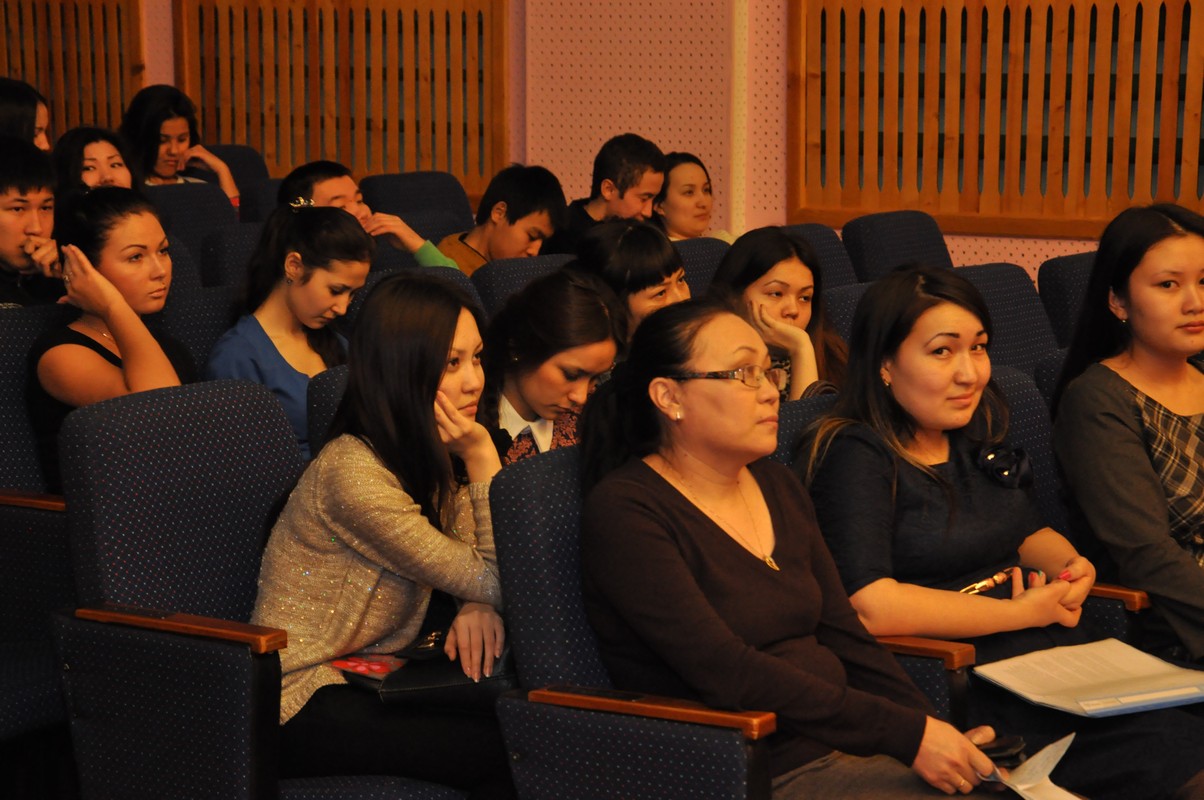The problem of terrorism has recently gained extreme topicality. Special attention should be paid to study of the factors that allow terrorism not only to exist, but also develop. The financing system of terrorism is of primary importance in this context. Nowadays, many aspects of this problem are described and analyzed in scientific literature.
 |
|
 |
 |
 |
 |
Our understanding of the social danger of terrorism financing resulted in a large-scale discussion devoted to this problem only. A lecture was held by the Faculty of Finance and Economics for undergraduate and postgraduate students of Faculty of Chemical Technology and Natural Sciences and Faculty of Architecture and Construction of S. Toraighyrov Pavlodar State University under the Bilim+ project. It was devoted to the basic principles of the law of the Republic of Kazakhstan “On Counteraction to Legalization (Laundering) of Illegally Obtained Incomes and Financing of Terrorism” in the context of problems of ensuring economic security of Kazakhstan.
The purpose of the lecture is countering the financing of terrorism, its prevention, and ensuring economic security of the Republic of Kazakhstan by introducing students to the main provisions of the law of the Republic of Kazakhstan “On Counteraction to Legalization (Laundering) of Illegally Obtained Income and Financing of Terrorism”.
The keynote speakers were students of the Faculty of Finance and Economics: Madina Sarina, Gulzhan Bakeyeva, Adilkhan Ibragimov, Bibarys Karzhas (supervisors: G.K. Besembayeva, V. Yesmagzam, A.T. Sultanova). During the lecture it was stressed that 'this type of criminal activity deserves more attention than other crimes, at least for our modern societies; it affects not only private individuals, but also the society in general, the international position of the country, the attitudes of people to each other, and public morality in general'. In this context, the keynote speakers presented information and educational materials about the concept of terrorism financing, basic provisions of international legislation on terrorism financing. For example, “financing” means raising funds to bring an operation to a successful end, i.e. making sure that the need for resources is fulfilled either with money or other values. This determines the basic characteristics of financing: it uses borrowed funds or assets (currency, cash , liquidity, capital , income ... ) and provides funds allocation. Terrorism financing is a set of methods and tools to cover the costs required to carry out a terrorist act or for supporting a terrorist organization. In this case, the tools of financing can be represented by money, securities, currency assets, services for economic planning of a terrorist organization activity, economic counseling for ensuring effectiveness of terrorism financing, as well as any other tangible assets except weapons.
After the lecture, students expressed their gratitude to the keynote speakers for useful information and to the Bilim+ project coordinators, the Regional Scientific and Practical Center for the Study of Interethnic and Interfaith Processes.






